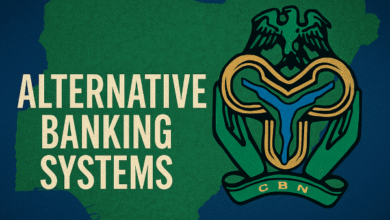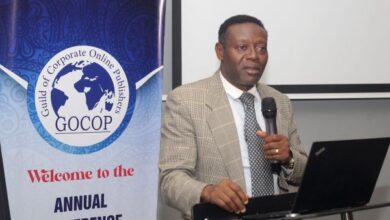Power blackout: Nigerians frustrated, want speedy solution to crisis
 Small business operators and residents in parts of the country have continued to decry the almost total power outage in their area, which has almost paralysed business activities.
Small business operators and residents in parts of the country have continued to decry the almost total power outage in their area, which has almost paralysed business activities.
The development they said had impacted negatively on both their economic and social lives.
According to them, they can no longer make ends meet as it has become difficult for them to cater for the needs of their families.
From Jigawa, Gombe, Bauchi, Kaduna and so many other states, the story is the same.
BRANDPOWER reports that the total power outage which cuts across almost all parts of the country has lingered for over two months.
It would be recalled that the Minister of Power, Mr Adebayo Adelabu said that the blackout being experienced in the country was due to low supply of gas to the power generating companies.
He, however, assured Nigerians that the Federal Government was working to ensure outstanding payments were made to the companies to resolve the blackout.
According to him, the payments will ensure improved gas supply and increased power generation.
“This will also enable distribution companies to supply more electricity to Nigerians.
“We acknowledge the current unsustainable situation, and we expect a turnaround immediately,” he said.
According to the minister, efforts are being made to ensure quick resolution of the blackout being presently experienced in some parts of the country.
Adelabu had also met with some chief executive officers of Electricity Distribution Companies (DisCos) over worsening power supply in their regions.
Mr Sule Abdulazeez, the Managing Director of the Transmission Company of Nigeria (TCN) also attended the meeting.
According to the minister, the management of other non-performing distribution companies will also be queried over non-performance as reports continue to filter in on situation in their regions.
“The ministry expects power supply to have improved across the country, as opposed to current experience in some regions.
“Findings revealed that some distribution companies are deliberately not taking up power supply from TCN, while some power lines have also been damaged by vandals in Abuja, Benin, Port Harcourt and Ibadan regions,’’ he said
In Dutse, business owners said they were almost losing their businesses due to the poor power situation being faced in the state.
Some of them, who spoke to NAN, said that they had to rely on generator to run their businesses.
Mr Aminu Inuwa, said: “if we use generator to produce ice block and other ice products, especially during Ramadan, the ordinary masses will not be able to afford the products due to high cost.
“The situation is getting worse by the day, for some weeks now, many of us have actually lost hope.
According to him, with the excess heat in Dutse and environs, people are finding it difficult to cope without cold products, especially ice block.
Mrs Regina Markus, a resident of Mopol Base in Dutse, who operates a grinding machine also decried the blackout, saying that she had been out of business for over a week.
She lamented that diesel was costly and so she only relied on power supply.
An Engineer, Salim Tijjani, advised the government to provide alternative source of energy to address the situation in the country.
He said that alternative power supply such as solar or wind energy, was some ways to resolve the power issues in the country.
“There is the need for governments to invest in alternative source of power supply.
Meanwhile, a staff of Kano Electricity Distribution Company in Jigawa who pleaded anonymity
Assured residents that stakeholders in the Power Distirbution sector were working hard to resolve the situation, and urged Nigerians to be patient and show understanding.
Small business owners in Gombe decry poor electricity supply, others turn to solar
In Gombe State, many residents said that the almost total blackout had affected their businesses, thereby, causing them more hardship.
Mrs Ijeoma John, a resident of Yelenguruza, who sells drinks and ice block, said power supply in recent time had been poor and she hardly sold her drinks.
John said the power supply challenge should be addressed to help cushion the economic impact of fuel subsidy removal and to help businesses to thrive.
“I make N10, 000 daily from selling soft drinks and pure water before now, because my drinks were always chilled but now things are different.
“I normally use generator to power my shop so I can get my drinks cooled enough for customers but since the subsidy was removed, I now rely on Jos DisCo.
“But for some weeks now, the supply has been consistently dropping and the supply is always low current and this has affected my business because the weather is hot,” he said.
For Hauwa Hassan, who sells ice block said in 2023, she made nearly N40, 000 from selling the commodity during Ramadan fast but now, “I doubt if I will get supply to keep the business up.”
Hassan said Ramadan season is always her peak season for business but “with the low current being supplied for between four and five hours per day, it is really frustrating for me.”
Ms Nancy Bitrus, a tailor in Nasarawo community said she loses an average of N6,000 daily as a result of poor supply and even total power outage most of the time.
According to Bitrus, “we need light to iron and do designs as we sew but we don’t get power regularly, infact before you iron one cloth, the light is out.”
For Mrs Comfort Ola, a kunu and sobo drinks seller, it was a tale of losses and temporary suspension of her business until supply improves.
Ola said she normally makes N2,000 profit daily from selling her commodity which according to her, remained her major source of income to support her household.
“Last week, my drinks got sour because of poor power supply, total power outage and I lost my capital in the process, so for now, I have suspended the business.
For Ibrahim Musa, a barber in Yelenguruza said the consistently poor power supply forced him to get a solar panel which cost him almost N330, 000 two years ago and since then he had never had issues with power.
BRANDPOWER observed that many of the provision and chemist shops in Gombe metropolis and suburbs have turned to solar energy for their energy need, especially for lighting and other charging purposes.
Mr Isyaka Ibrahim, who is into solar panel installation said there was growing demand for solar energy because of the epileptic power supply.
Ibrahim said within a week he gets up to eight calls for solar panel installation compared to before the power situation.
“The demand for solar is growing daily because of poor supply and it (solar) is the most reliable and cost-effective for small businesses that need the energy to light up their shops.”
Reacting to the complaints, Mr Abdullahi Hussaini, Jos Electricity Distribution Company (JED)’s Regional Network Engineer, Gombe State said JED was as concerned as its customers.
Hussaini described the situation as a national issue that had nothing to do with JED, adding that customers could only get supply based on what was allocated to them.
He said that whatever they got in terms of allocation was what they distributed to numerous customers in their franchise area.
According to him, the 30megawatts that is allocated to Gombe State is being distributed across the state.
“We have about 28 feeders in Gombe both 33kv and 11.
“One of our major feeders, that is the 33kv alone, can accommodate the supply being allocated to the whole state, and that is why we are rationing the allocation.
“We are concerned too because we need this allocation to be in business and make our customers happy.
“We are service providers, without customers, we are nothing.
He appealed to customers and business owners in the state to be patient, adding that as soon as supply improves, they would feel the impact.











